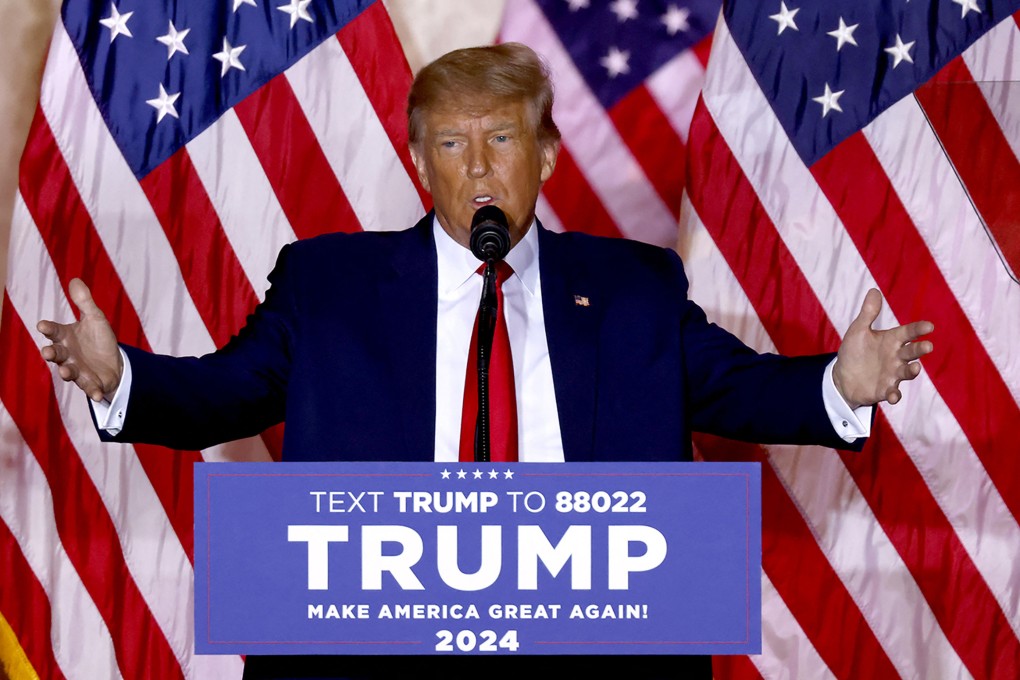Advertisement
Donald Trump announces 2024 bid for US presidency, vows to cut ‘dependence on China’
- Third run for Oval Office will face opposition from own Republican Party after lacklustre midterm election results for candidates he backed
- Former president who steered US into direct economic confrontation with China undeterred by impeachment and ongoing January 6 probe
Reading Time:3 minutes
Why you can trust SCMP
29

Former US president Donald Trump, whose administration steered Washington into direct economic confrontation with Beijing, announced late on Tuesday that he will run for a second term in the White House.
Undeterred by an impeachment and an investigation by the US House of Representatives for his role in the January 6 riots on Capitol Hill last year and poor results for a slew of candidates that he backed in last week’s midterm elections, Trump declared his intention during a prime-time event at his Mar-a-Lago resort in Florida.
“We turned the page on decades of globalist sell-outs and one-sided trade deals … and built the greatest economy in the history of the world,” Trump told the crowd, referencing trade policies that he presided over, including the tariff war with Beijing that started in 2018.
“No president had ever saw [sic] or received one dollar for our country from China until I came along.”
However, the 45th US president’s signature effort to rebalance the bilateral economic relationship has yet to bear fruit despite a phase-one trade agreement with Beijing that committed China to buy an additional US$200 billion worth of American goods and services over the following two years.
According to a report released by the Peterson Institute for International Economics in February, China bought only 57 per cent of the US exports it had committed to purchase under the agreement, which was “not even enough to reach its import levels from before the trade war”.
Advertisement
Select Voice
Choose your listening speed
Get through articles 2-3x faster
1.1x
220 WPM
Slow
Normal
Fast
1.1x